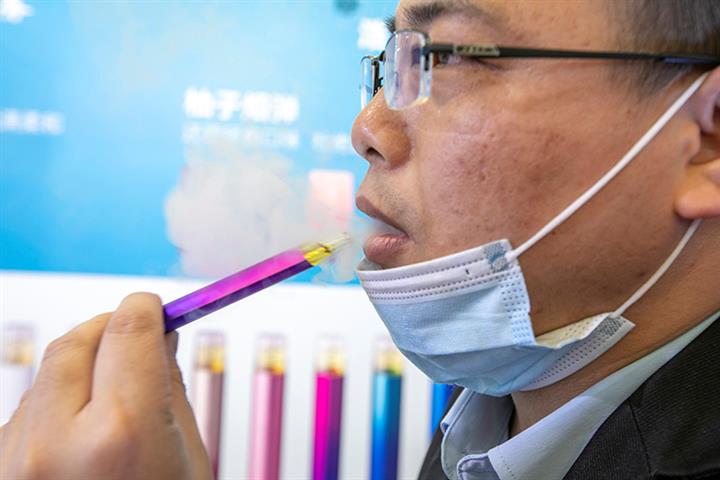 Regulators’ Move to Classify E-Cigarettes as Tobacco Products Set to Shake Up Market
Regulators’ Move to Classify E-Cigarettes as Tobacco Products Set to Shake Up Market(Yicai Global) March 23 -- Chinese regulators’ plan to classify electronic cigarettes as tobacco products could have a huge impact on the booming domestic e-cigarette market and the entire sales structure will see major changes, according to tobacco industry insiders.
E-cigarettes are similar to rolled cigarettes in terms of core components, function, means of consumption and other respects, and therefore will be subject to the same regulations, China’s Ministry of Industry and Information Technology announced on its website yesterday, adding that this is in line with other major countries and regions.
In recent years, the market share of e-cigarettes has increased rapidly, amid a compound annual growth rate for the global e-cigarette market of 24.2 percent from 2014 to 2019. China's e-cigarette industry has been growing fast, especially after the outbreak of the Covid-19 pandemic. Shenzhen-based Smoore International went public last year, and other domestic e-cigarette brands have become popular in first- and second-tier cities in China.
The growth of the market was not hampered by China’s ban on online sales of e-cigarettes at the end of 2019, a move aimed at protecting adolescents, Wang Fan, a tobacco industry insider, told Yicai Global.
There are currently more than 1,000 e-cigarette manufacturers in China, and over 400,000 people are employed in the sector. The country’s domestic sales of e-cigarettes reached CNY14.5 billion (USD2.23 billion) last year, according to data from the Chinese Association on Tobacco Control.
The general agent of an e-cigarette brand in Shanghai informed Yicai Global that opening an e-cigarette store costs tens of thousands of yuan, but the seller can normally make the money back in about half a year due to the high profit margin of the product. The profit margin from the cigarette rods is 50 percent and that of cartridges is 40 percent.
Shanghai now has more than 1,100 e-cigarette stores, some of which also operate online and through WeChat business channels.
Currently, selling e-cigarettes only requires a business license issued by the Industrial and Commercial Administration, the general agent said.
This policy adjustment will not endanger offline stores because raw materials for making e-cigarettes are approved by the state, the agent said, but an increase in taxes could pose a problem.
Wang thought this was too optimistic. According to China’s Tobacco Monopoly Law, to engage in production, wholesale, and retail of tobacco products, one must apply for a tobacco monopoly license, which is quite difficult to obtain at present.
Editor: Tom Litting